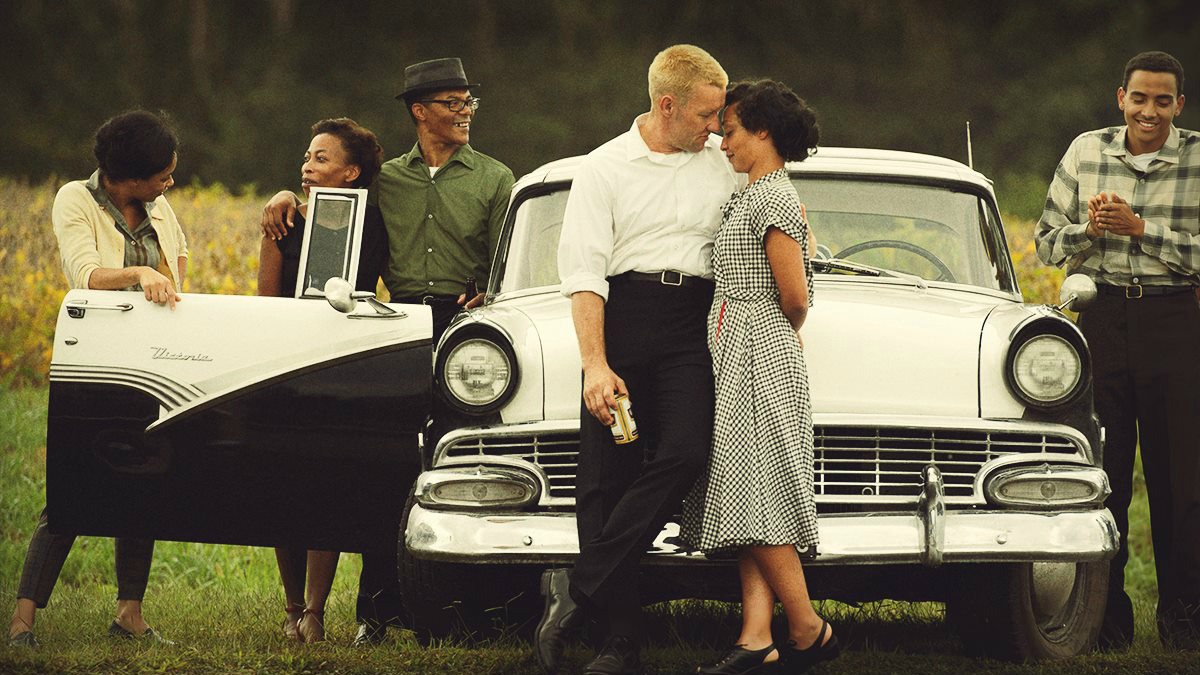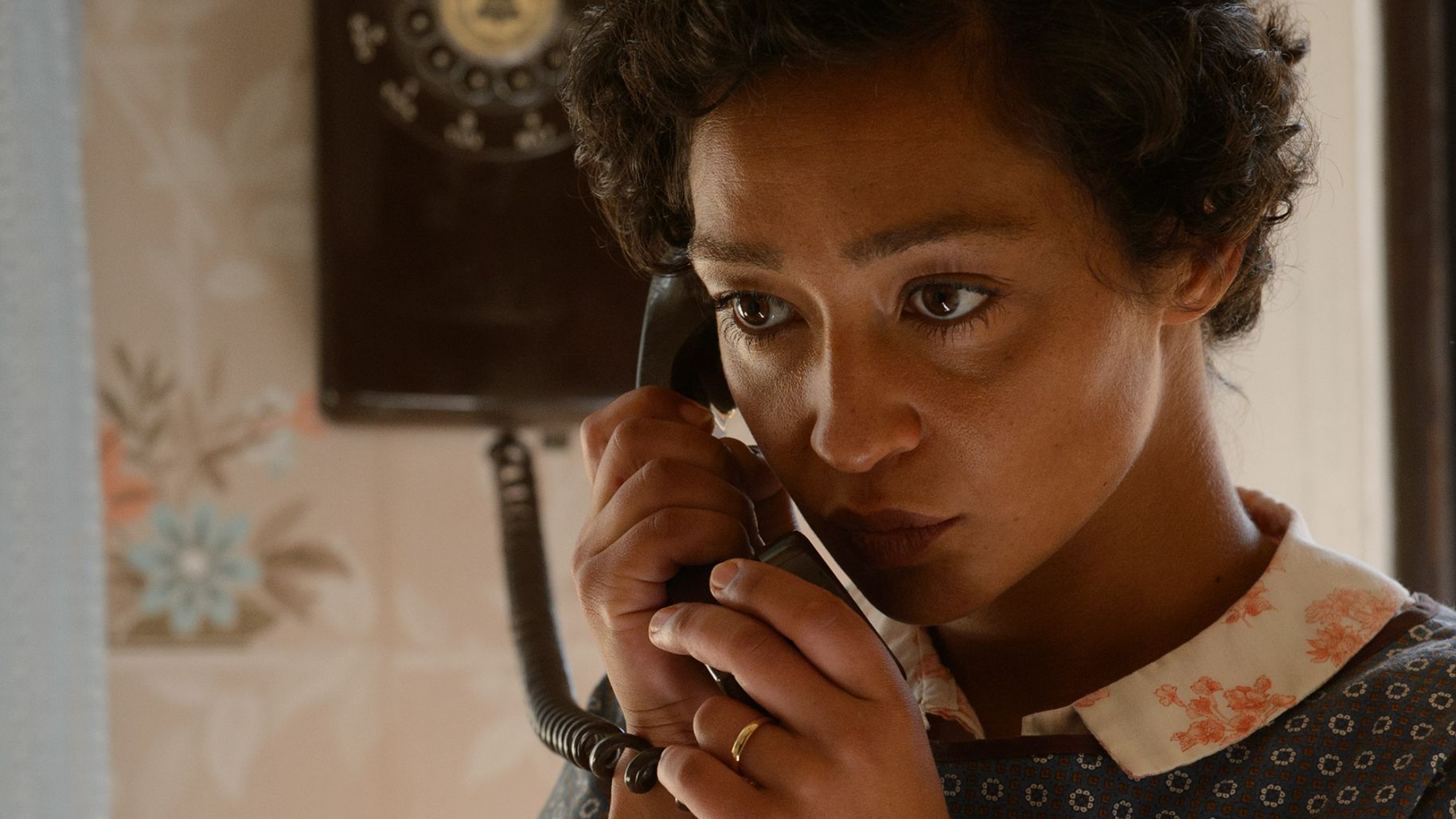Rich and Mildred Loving love each other. It’s as simple as that.
Living in a seemingly serene pocket of rural Virginia, the two travel to Washington, DC, after Mildred gets pregnant and marry in the simplest of ceremonies. The Lovings want what any couple in 1958 wants: to own a home close to their families, to raise a family of their own, and to live in peace.
However, the outside world can’t see anything but what they’ve deemed unacceptable: a white man married to a black (and Native American) woman. Someone calls in a tip to the police, who break into the Lovings’ home in the middle of the night and arrest them. Despite the marriage certificate hung proudly on the wall and Mildred’s pregnancy, the Lovings are banished from the state of Virginia for being married to each other. When Mildred grows weary of DC, she writes an appeal to Robert Kennedy. Their case makes it to the Supreme Court, and the rest is—literally—history.
Loving v. Virginia is a landmark case for civil rights and marriage equality, and I expected such a historic decision to produce a court-focused movie, but Loving isn’t about that at all. There’s less than a minute dedicated to the Supreme Court hearing, cutting back to focus on the Lovings and their children. When they win the case, we hardly notice the reporters as the couple embraces. This story is about them. Loving is a slow, tender portrait of a marriage, focusing on the way that husband and wife support and care for each other in the day-to-day.
Loving is a quiet film with the same sensory enjoyment and attention to detail that director Jeff Nichols lavished on Mud. It’s slow—at times, perhaps a bit too slow—but it takes its time to show the depth of the couple’s love. Deeply personal instead of overtly political, the filmmaker’s approach proves the truth of the decision more than anything else could.
Racial divisions aren’t a concern until 20 minutes into the film; the movie opens in an idyll where black and white people are able to commune together. Rich clearly feels at home with Mildred in majority-black spaces, and he’s part of the family when he visits her home for dinner. The state views the community of Central Point with disdain, calling it “all mixed up.”
Rich and Mildred’s exile feels like an almost biblical paradise lost, with choosing each other their only “sin.” The beauty of their relationship becomes a lifeline. Even in the isolation of Washington, DC, they carry that Eden within themselves, passing it on to their children and finally arriving home, in a place where their family can live without the hatred of the outside world—in a place they deserve.

The Lovings are an incredible model for a healthy relationship. Their roles are traditional, but they are clearly equals, ebbing and flowing around each other. It’s a love of few words, but they consistently put the other first. The audience can see this unspoken affection in the way that they look at each other across a room. Rich is a man of action—he works with his hands and always makes sure that Mildred has what she needs, from the house he builds to the way they live. “What can I do?” he asks her. When she says, “I always thought your mother would be the one to deliver the baby,” he says, “Okay,” and that’s it. They pack up their things and return home, risking rearrest. “I can take care of you,” he insists tearfully when others tell him to divorce her. “I can take care of you.”
Mildred is more vocal. She’s the one to write to Robert Kennedy. She speaks to the ACLU lawyers and to the press about the case when her husband is too uncomfortable. But when Rich doesn’t want to attend the Supreme Court hearing—doesn’t want to hear Virginia lawyers say horrible things about his family—Mildred hangs back, too. “I’m not going without him,” she says simply.
In an era of over-the-top romances filled with declarations of undying love or the drama of unhappily married couples, Loving is a breath of fresh air, extolling the beauty of the everyday in marriage. The film glories in love’s quiet expression: the comfort of her hand in his, a mother watching her husband play with their children, a simple remark (“Tell the judge I love my wife”). It’s not a romance we’re used to seeing onscreen, but it’s one I’d like to see again.
The only mention of God in the film comes from the villainous law enforcement and a quoted judge, who insists that “Almighty God created the races white, black, yellow, malay and red, and he placed them on separate continents” which “shows that he did not intend for the races to mix.” These words, so ridiculous in their own right, are made even more ludicrous when placed against the Lovings. They are undeniably one flesh, united in every way in the sacredness of marriage. They weather every storm, because “many waters cannot quench love, neither can floods drown it.” Even their name seems preordained.
Although set half a century prior to today, Loving is a timely reminder, especially in a political season filled with so much hatred and divisiveness, of the overwhelming power of quiet and selfless love.
Now is the time to truly listen to one another—not to argue but to try to understand—and hold each other accountable for our prejudices. Different people coming together is one of the most beautiful legacies of the gospel—and we need to remember that in 2016 as much as in 1958.
Kristen O'Neal (@Kristen_ONeal) is a New York City–based writer who loves telling and experiencing stories. You can find more of her work here.










